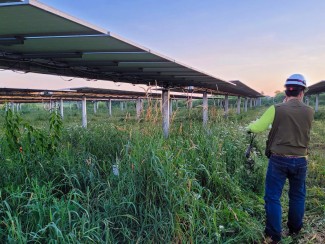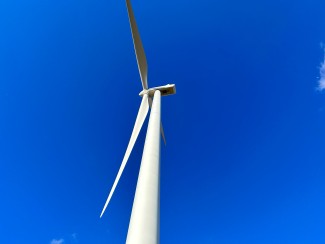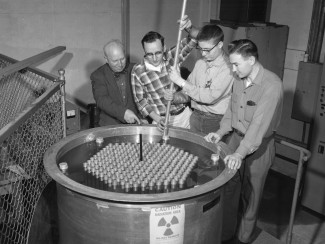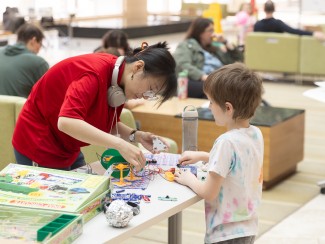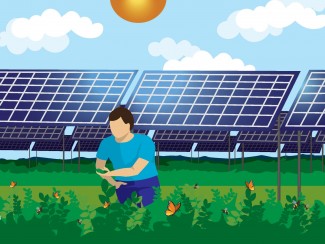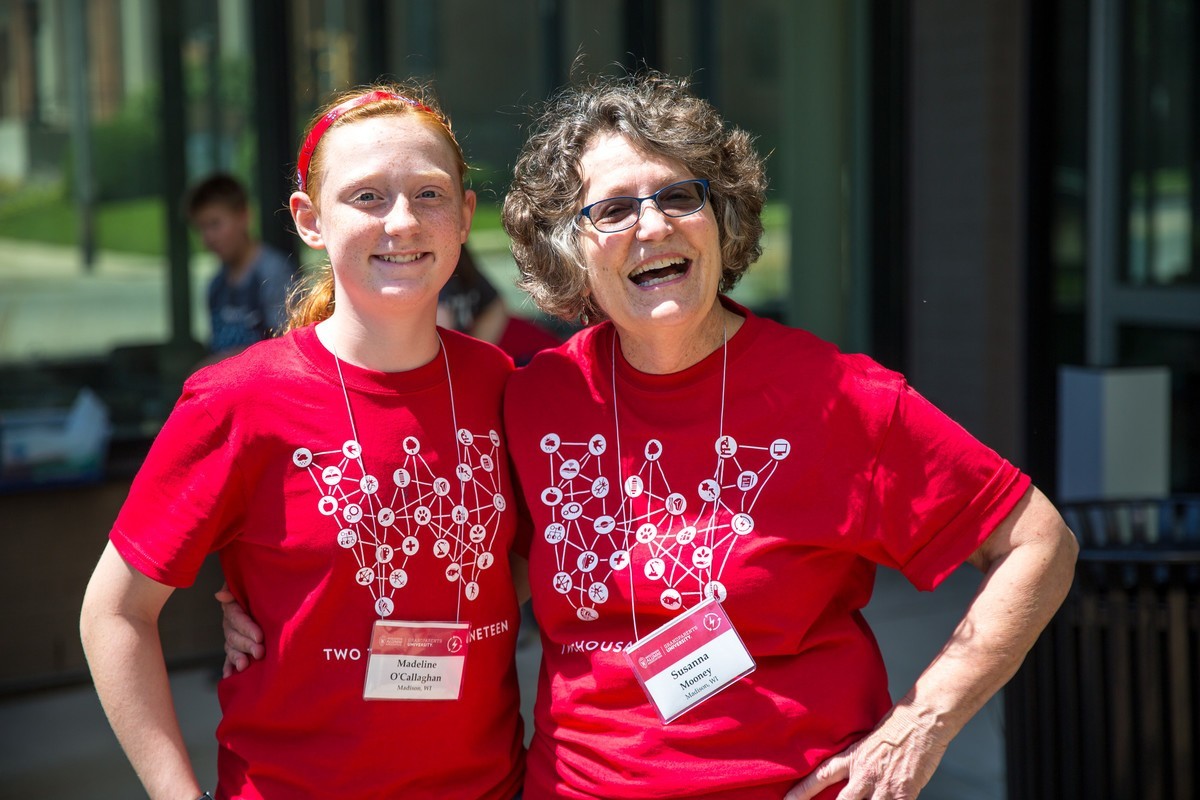
Every summer, more than a thousand UW–Madison alumni return to campus accompanied by their grandchildren to take part in Grandparents University, an intergenerational learning experience organized by the Wisconsin Alumni Association. This year, two classes of Wisconsin grandparents and grandchildren became energy experts right here at the Wisconsin Energy Institute. Attendees designed and built their own wind turbines, experimented with fermentation, toured labs, and learned what energy means to one another—and how that has changed over the years.
We sat down with a few participants to talk through generational shifts in perceptions of energy. “What did your parents teach you about energy?”, “What did you teach my parents?”, “How have you seen energy use change?”, and “What are your hopes for my generation?” were all questions posed by grandchildren seeking words of wisdom.
From these conversations, we learned how the systems that keep the lights on can help thread a family history, and how evolved perceptions of these systems can point to the future of clean energy.
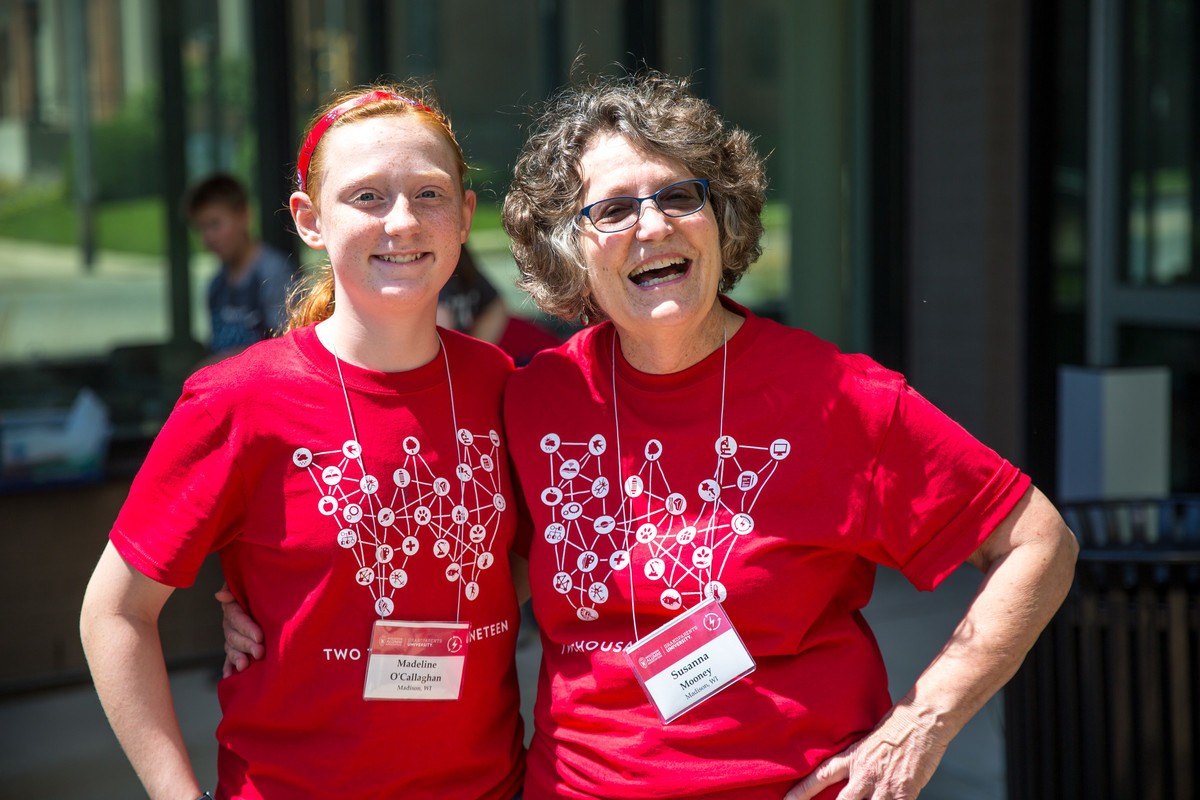
Growing up with energy and electricity
Grandparents agreed that when they were young, energy was never really discussed at home or at school. The older generation explained that conversations about electricity were characterized in terms of how much it cost, so the only question of energy conservation was whether or not a family could afford to waste it.
Voices in this clip (in order):
Merrilee Riley, Plymouth, MN
Reese Heinrich, Muskego, WI with Roger Zimmerman, Madison, WI
Lan Wadell, Marshall, WI with Trent Waddell from Appleton, WI
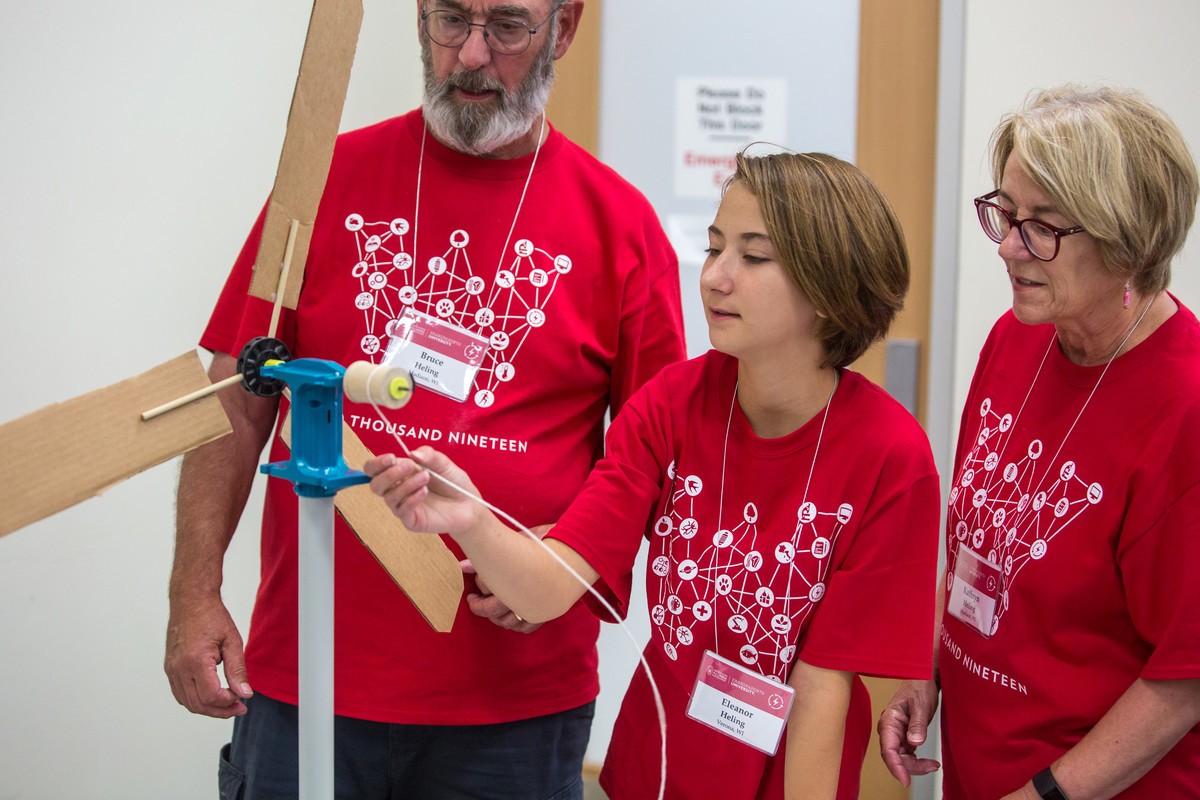
Renewable energy by a different name
When asked about what renewable energy implied to them, the older generation zeroed in on technologies that allow sources such as wind and solar to be more viable. Communities applied some sources, like wind, just not in the same way or to the same degree as they do today. Grandparents cited the advancement of technology as the catalysis for renewable energy in the terms that we think of today, but also as the limiting factor in their perception of its feasibility.
Voices in this clip (in order):
Bruce Heling, Madison, WI
Merrilee Riley
Trent Waddell, Appleton, WI
Bruce Heling
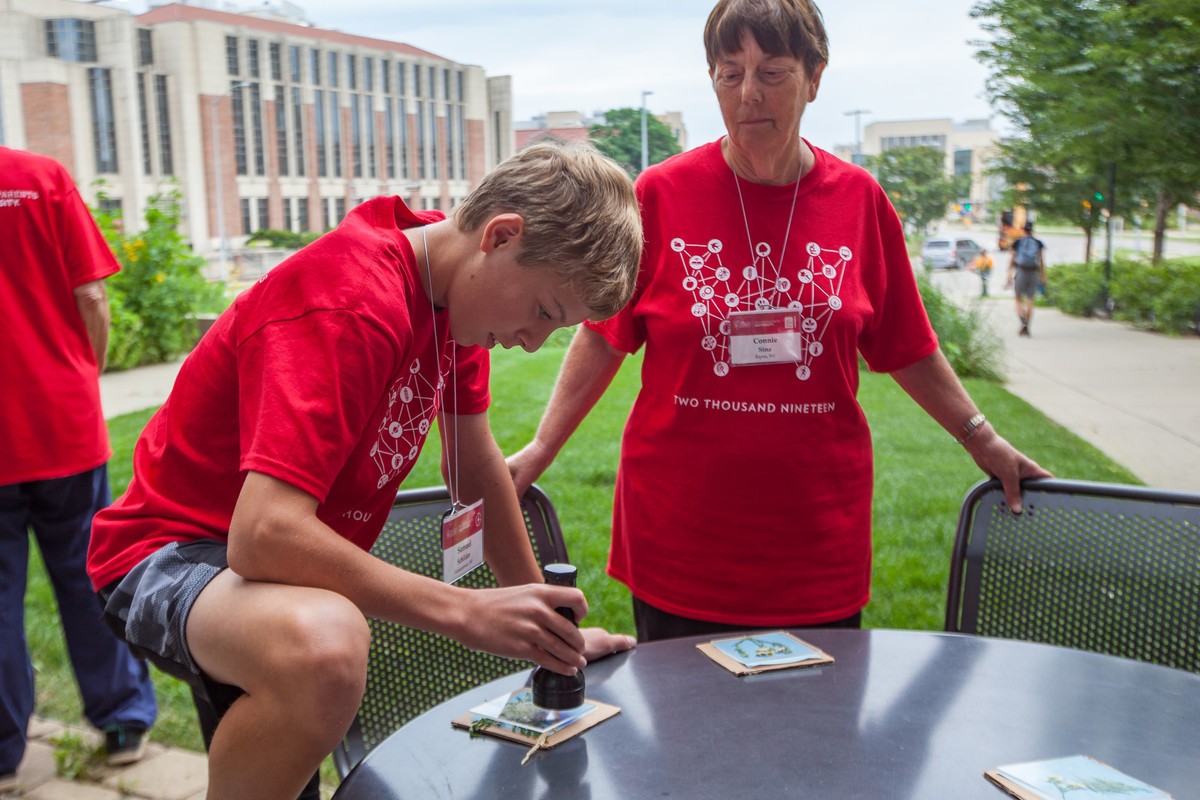
Changing climate, changing values
Through these conversations, the older generation said they found it difficult to pinpoint exactly when the human impacts of fossil fuel use first became part of the cultural conversation. Most grandparents agreed that it wasn't often discussed amongst their families when they were young. As extreme weather events have become more common, however, they reported coming to a more rounded understanding of the effects of climate change on their lives.
Voices in this clip (in order):
Trent Waddell
Roger Zimmerman
Trent Waddell
Roger Zimmerman
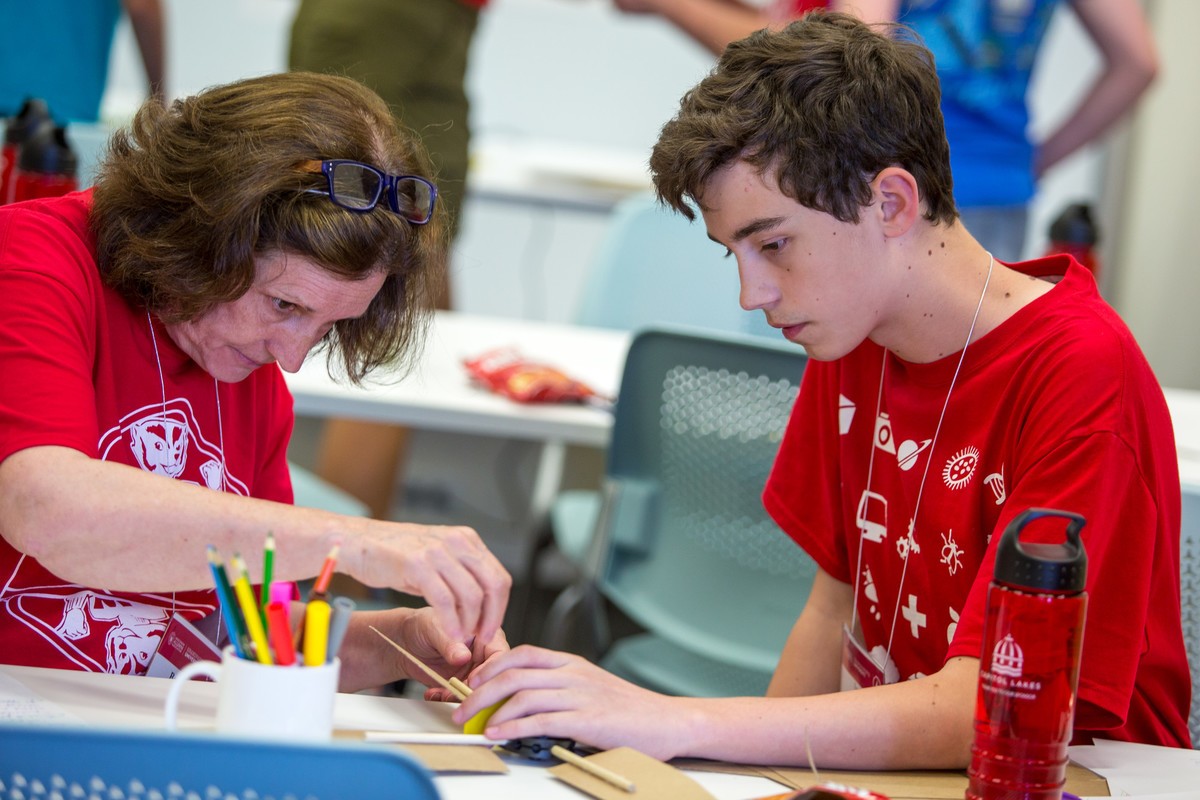
Building bridges
Reflecting on their childhood, grandparents were encouraged by their young family members to examine just how much cultural perceptions of energy have changed. Impressed by their grandchildren’s awareness of energy issues, the older generation was united by its hope for the next generation. Grandparents agreed that although there is much work to be done, they had no doubts that their grandchildren would rise to the occasion with the wisdom of the past on their side.
Voices in this clip (in order):
Bruce Heling
Kathryn Heling
Trent Waddell
Olive Riley, Plymouth, MN with Merrilee Riley
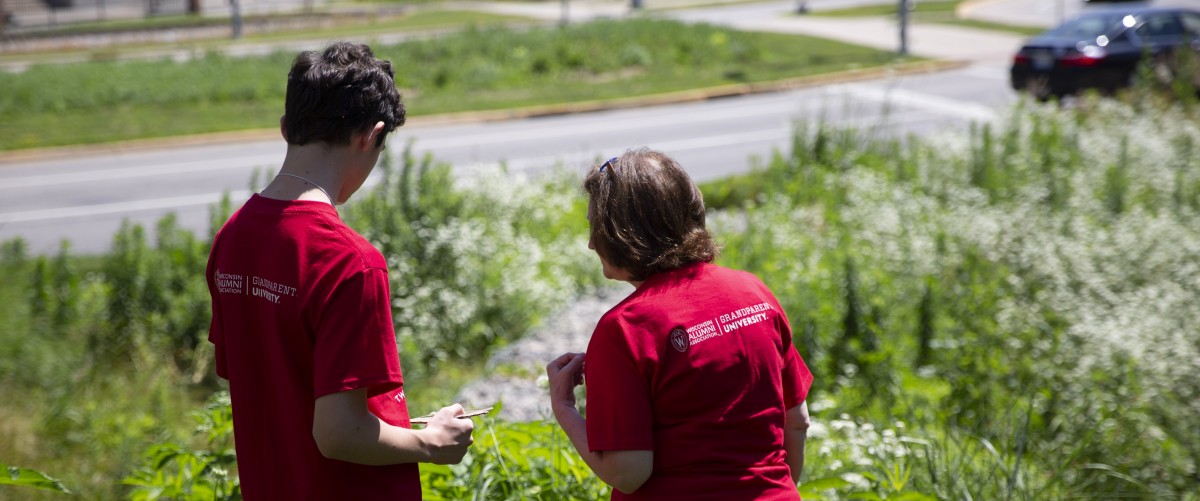
Grandparents University is sponsored by the Wisconsin Foundation Alumni Association. More information regarding this program is available here. Special thanks goes out to the UW–Madison Oral History Program, who provided audio recording equipment for these multigenerational interviews. Full audio will be archived soon.

